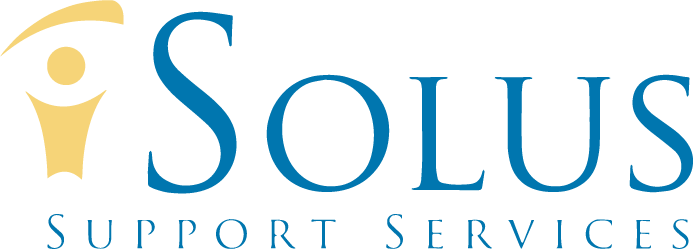
SERVICES
Acquired Brain Injury (ABI)
An Acquired Brain Injury (ABI) can have a life changing impact on the person with the injury, their family and their wider social network.
At Solus, we understand that managing the unexpected effects of sudden damage to the brain is emotionally and practically challenging for everyone concerned. Our Enhanced Personal Support Workers provide high-quality services to support carers and their family members as they adjust to these changes.
Each person’s experience will be different. So, we listen carefully to what you want and create an individualized care and support plan to help you achieve your goals. Working alongside your treatment team your Support Worker can help with:
Support to relearn basic life skills such as walking, talking, and recognition
Personal care to keep you looking and feeling your best
Assistance with making sure prescribed medicines are taken at the right time
Developing confidence towards greater independence and involvement in the local community
Help around the home
Respite care that carers can rely on for a well-earned rest
Can provide 24 HR support
Our support workers also provide much needed emotional support, such as a listening ear to share worries.
WHAT DOES ACQUIRED BRAIN INJURY MEAN?
An acquired brain injury refers to a sudden injury to the brain that occurs after birth. This could be the result of a traumatic injury such as a severe blow, jolt or motor vehicle accident, or it could be the result of a tumour, stroke, infection or haemorrhage.
COMMON CAUSES AND SYMPTOMS
An acquired brain injury can occur at any age and our care assistants have experience of helping a variety of age groups. It may be caused by a fall, an assault, a motor vehicle accident or sporting incident. The location and type of injury will determine the severity of damage, which skills and mental abilities are affected and for how long.
-
Following a mild acquired brain injury, a person may experience concussion, loss of consciousness for a few seconds or minutes, dizziness or loss of balance, memory and concentration problems, headaches, mood and sleep changes, and sensitivity to light or sound.
A person with a moderate to severe acquired brain injury may have any of these symptoms as well as profound confusion, agitation, slurred speech, convulsions, pupil dilation and loss of coordination. They may also lose control of bodily functions, have worsening headaches, and episodes of nausea and vomiting.
Acquired brain injury can also cause depression, anxiety and a range of inappropriate emotional responses. These symptoms can be especially difficult for families.
HOME AND COMMUNITY BASED SUPPORT
Individuals impacted by an ABI often have behavioural and psychosocial support needs that require a multi-disciplinary team approach during their rehabilitation process. Each person’s experience will be different. So, we listen carefully to what you want and create an individualized care and support plan to help you achieve your goals. Working alongside your treatment team your Support Worker can help with:
-
Support to relearn basic life skills such as walking, talking and recognition
Personal care to keep you looking and feeling your best
Supporting a personalized routine that gives structure and predictability for daily living
Developing a healthy lifestyle, meal planning/preparation assisting with light housekeeping and personal care as needed
Encouraging, reminding and supporting as needed for activities of daily living
Ongoing support of behavioural strategies to assist in maximizing quality of life, including redirection of behaviour into positive behaviours’
Ongoing support of cognitive strategies to enhance the quality of life
The supervision of social and community activities, outings and hobbies
Developing confidence towards greater independence and involvement in the local community
Respite care that carers can rely on for a well-earned rest
OUR EPSW
Our staff team can be tailored to meet your specific requirements ensuring a consistent response. Our EPSW’s are well trained, knowledgeable and genuinely care!
Our Support Workers are experienced and committed professionals who must posses the following:
-
Skills to implement behavioural programming
Skills to implement life skills and social skills programming
Possess strong interpersonal and communication skills
Undergone an extensive interview and reference check process
Have passed a criminal reference (Vulnerable Sector Screening) check
Hold First Aid and CPR Certification
Completed post secondary education in a related field
Minimum 2 years of related experience

GET IN TOUCH
Head Office
605 James Street N, Suite 400B
Hamilton, ON L8L 1J9
Toronto Office
192 Spadina Ave, Suite 317
Toronto, ON M5T 2C2
OUR SERVICE AREA





